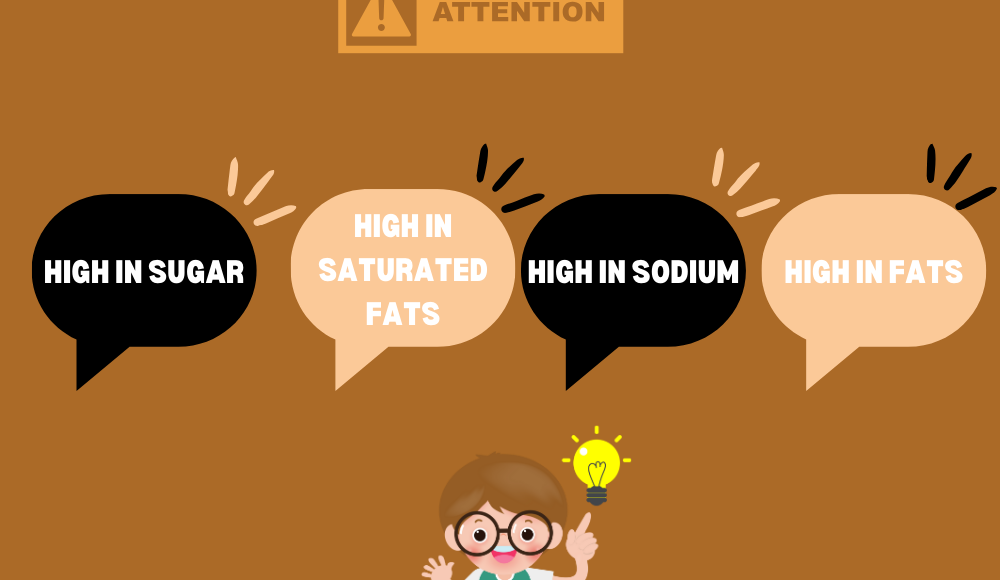
As World Food Day is marked today, the focus on food security and nutrition is more pressing than ever. In Kenya, where childhood obesity and diet-related diseases are on the rise, the need for clear and easy-to-understand food labeling cannot be overstated. Yet, many everyday products like cakes, sweets, bread, and juices lack front-of-pack warning labels, leaving parents and caregivers without the necessary information to make healthier choices for their children.
What are Front-of-Pack Warning Labels?
Front-of-pack warning labels are simple, visible indicators that show whether a food product contains high levels of sugar, salt, or unhealthy fats. These labels are designed to give consumers quick, accessible information so they can make better decisions about what to feed their families. In countries with these labels, consumers are better equipped to avoid products that may be harmful to their health, especially for children who are most vulnerable to poor nutrition.
The Growing Health Crisis Among Kenyan Children
Kenya is experiencing a troubling rise in non-communicable diseases like diabetes, heart disease, and obesity, even among children. A growing number of children are consuming processed and sugary foods, often without a clear understanding of the health risks associated with these products. Cakes, sodas, sweets, and even common staples like bread and fruit juices are frequently high in sugar, salt, and unhealthy fats.
In the Kenyan market, these products are often packaged attractively, with bright colors and appealing imagery, making them irresistible to children. Yet, without front-of-pack warning labels, families are left in the dark about the true contents of these foods. Children who consume too much of these processed products are at greater risk of developing serious health issues at a young age.
The Need for Clear Labels in Kenya
The lack of front-of-pack warning labels in Kenya means that parents and caregivers often have to navigate confusing and hard-to-read nutritional information on the back of packaging. Busy families, many of whom do not have time to inspect every label in detail, are unable to make informed choices about what to buy.
Introducing front-of-pack warning labels would provide much-needed clarity. These labels would serve as a simple, visual guide to help consumers quickly determine if a product is high in sugar, salt, or fats. With easy-to-understand warnings, families can better manage their food choices, leading to healthier children and a reduction in the growing burden of non-communicable diseases in Kenya.
The Role of Policy and Public Awareness
Countries that have implemented front-of-pack warning labels, such as Chile and Mexico, have seen positive results, with consumers increasingly avoiding unhealthy products. Kenya can follow this example by introducing similar labeling regulations, particularly for products that are widely consumed by children. This would not only encourage healthier eating habits but also push manufacturers to reformulate their products, making them healthier for everyone.
In addition to new regulations, public awareness campaigns are essential. Educating the public, especially parents and caregivers, about the dangers of excessive sugar and salt in children’s diets is critical. Kenyan schools, health organizations, and communities should be involved in promoting healthier eating habits for children.
On this World Food Day, the importance of improving children’s nutrition in Kenya must take center stage. Front-of-pack warning labels can play an important role in this effort, helping parents and caregivers make more informed decisions about the food they buy for their families. It’s time for Kenya to adopt clear, transparent labeling policies that put children’s health first.

Leave a Reply